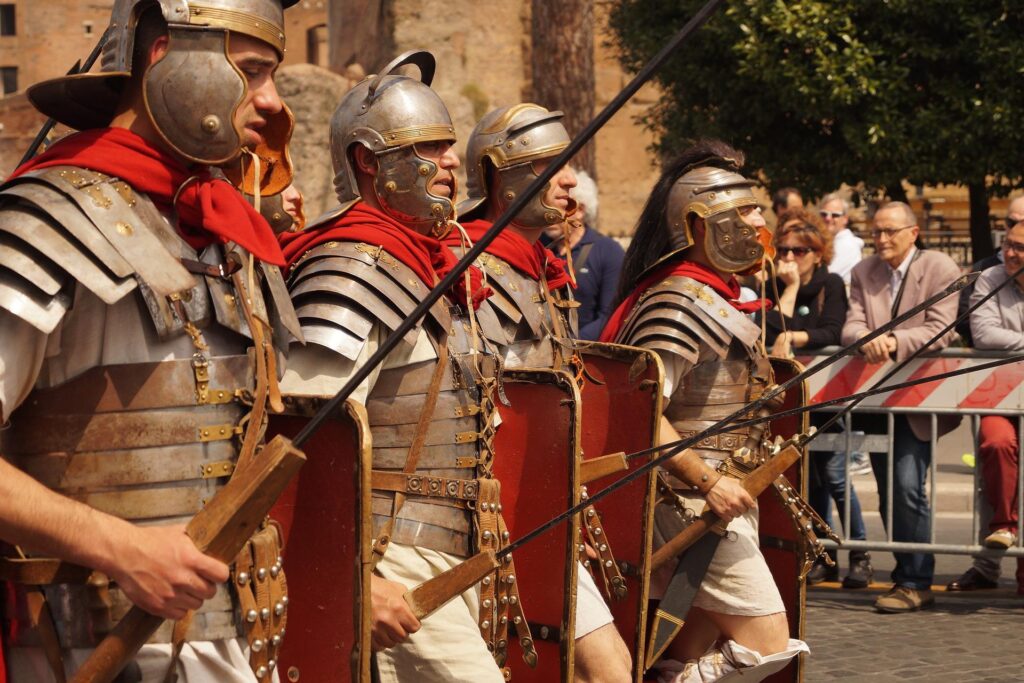When we talk about examples of profound faith in the Bible, there are few so touching, at least for me, than that of the Roman Centurion who was in the crowd and asked Jesus to heal his servant.
Matthew tells of a Roman centurion who came to Jesus to ask for healing for his servant.
He asked:
“Lord,” he said, “my servant lies at home paralyzed, suffering terribly.” Matthew 8:6
This simple request has a profound symbolism as I imagine it mirrors what could have been a conversation in heaven between God the Father and His Son for a lost world and a bride “paralysed by sin and suffering terribly” as a result.
Jesus being the advocate for us to the Father, ever making intercession for us. He left His throne in glory to take on flesh so He could die for us and heal us from our paralysis and sufferings. Jesus’ position in heaven i.e. God’s own Son was not a deterrent to see himself as the Saviour of all mankind. He left it all behind to take on a human body that could suffer and die.
He understood the centurion’s plight for his servant, because He was in a similar position of sorts, He came to advocate for those who were spiritually ‘paralyzed and suffering terribly’.
Jesus Offered:
Jesus said to him, “Shall I come and heal him?” Matthew 8:7
When Jesus heard the centurion’s request, he immediately offered to go with him to his house to heal his servant. Jesus knew this was a Roman soldier, but unfazed by ethnicity, gender or rank, he was prepared to accompany the centurion to his house. This gesture would have certainly been frowned upon by the Jews, and Jesus knew this, after all Romans were regarded as the oppressors of God’s people. Unprejudiced Jesus, willing once again to entangle himself with people outside of God’s Law would’ve most certainly drawn criticism from the Jews in the crowd.
However, as Jesus openly offered to visit the centurion’s house, in the same way the centurion, a Roman, openly confessed his faith in Jesus. Both risked criticism and contempt from their own people. There is sacrifice involved in confessing our faith and belief in Jesus. Just like Jesus and the Centurion we could face ridicule, rejection or criticism.
But Jesus promised: “Whoever acknowledges me before others, I will also acknowledge before my Father in heaven.” Matthew 10:32
He showed genuine humility:
The centurion replied, “Lord, I do not deserve to have you come under my roof. Matthew 8:8

To understand the depth of his humility we need to look at what the Bible tells us about this man. A centurion in the Roman army was a commander of about 100 men. The Roman army was divided into legions that could consist of about 6000 men and in such a legion there were 60 centurions. These formed the backbone of the legion as they were responsible for enforcing discipline. They were also well off, being remunerated at a much higher rate than an ordinary soldier and receiving a greater portion of the spoils after victorious battles.
This man was clearly a leader and used to the power and responsibility that came with the job of commanding troops. He was familiar with authority as he operated under the authority of the Roman Emperor. When he approached Jesus, he became acutely aware of his own unworthiness in the presence of someone who had much greater authority than him.
The centurion appears to be a humble man, caring for his suffering servant when another would’ve left him to die and look for a replacement. Christ’s presence made him even more humble, not rejecting Jesus’ offer to pay his household a visit, but showing true humility in comprehending his own unworthiness.
The more we humble ourselves in the presence of God, the more His glory shine through us.
He had faith:
“But just say the word, and my servant will be healed. For I myself am a man under authority, with soldiers under me. I tell this one, ‘Go,’ and he goes; and that one, ‘Come,’ and he comes. I say to my servant, ‘Do this,’ and he does it.” Matthew 8: 9
This was the first time that we read of Jesus healing someone from a distance, without seeing them. This is powerful as Jesus always went to the sick person’s house to lay hands on them and in the case of the lepers, Jesus was able to see them.
It was easy for the Jews to believe if they could see the miracle happen before their eyes, but in this encounter they heard that strong faith in God’s WORD could bring healing to the sick no matter how far away. The Centurion’s faith allowed Jesus to “but say the word. “
The centurion understood that this was his only opportunity to ask Jesus because there were many people in the crowd wanting His attention. There would be no other opportunity to call on the Master if his servant had not been healed.
However, the centurion understood that true authority had within it the unwavering expectation that once a word or command is spoken it had to be fulfilled to the letter. This same understanding enabled him to trust Jesus’ words who was under an even higher authority than himself.
Jesus acknowledged his faith:
“When Jesus heard this, he was amazed and said to those following him, “Truly I tell you, I have not found anyone in Israel with such great faith.”
In all of Jesus’ ministry up to that point, no one had ever displayed such depth of faith and trust in God’s spoken word. The Bible says, “He was amazed” and saw in it an opportunity to teach the crowd that, for the first time, they would witness the miracle power of God’s spoken word.
This encounter highlighted the fact that the Israelites knew God’s Law and scriptures, but that they did not believe in the power of God’s word. They were comfortable with their religious practices as long as they “obeyed” the Law of Moses. They would believe if they could see with their own eyes the miracles performed in front of them, but this was not faith.
Now, Faith is the substance of things hoped for, the evidence of things not seen. Hebrews 11:1
The centurion’s faith inadvertently shed light on the dark fact that many Israelites, though they observed all the laws of Moses, neither believed the Word of God, nor recognised God’s own Son who stood before them in the flesh.
His reward:
“ I say to you that many will come from the east and the west, and will take their places at the feast with Abraham, Isaac and Jacob in the kingdom of heaven.”
Jesus revealed here that those who were not Israelites but who believed in Jesus and God the Father would have a place at the banquet with those who had gone before. That with the coming of the Messiah, salvation did not just come for the Jews but also for the Gentiles. That people like the centurion, who believed in Jesus’ authority and that He came from the Father, would also be saved.
Healing and salvation:
“Then Jesus said to the centurion, “Go! Let it be done just as you believed it would.” And his servant was healed at that moment.” Matthew 8:13
The centurion’s strong faith and unwavering belief in God’s word brought not only healing for his servant, but it also brought salvation for his soul.
Where we stand:
It is amazing the parallels we can draw between this story and the dilemma that plays out today. Like the Jews, many Christians feel secure in their religious practices and believe that they are in right standing with God. However, upon closer look it becomes clear that their faith and belief in God’s word have eroded in the wait for the Lord’s return.
“Not everyone who says to Me, ‘Lord, Lord,’ shall enter the kingdom of heaven, but he who does the will of My Father in heaven. Matthew 7:21
We are all vulnerable to influences around us, but faith and trust in God’s word is built and strengthened in our daily relationship with Him. Choosing to sit in His presence with humility, to ask Him to heal and strengthen us and to trust that what He had said in His word is true, will bring us the reward Jesus promised the centurion. That there is a place for us at the table in heaven with those who had gone before us.
Let us guard our faith and strengthen our trust in God’s word, so we are not just known as Christians but also as believers and doers of the Word.
“By their fruit you will recognize them…” Matthew 7:16
Amen


